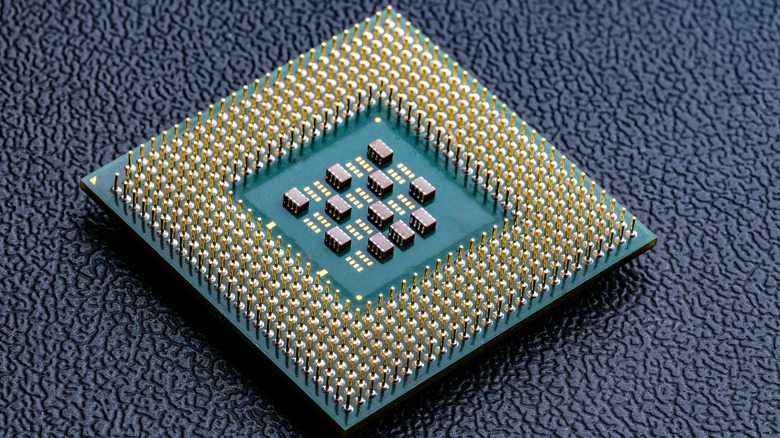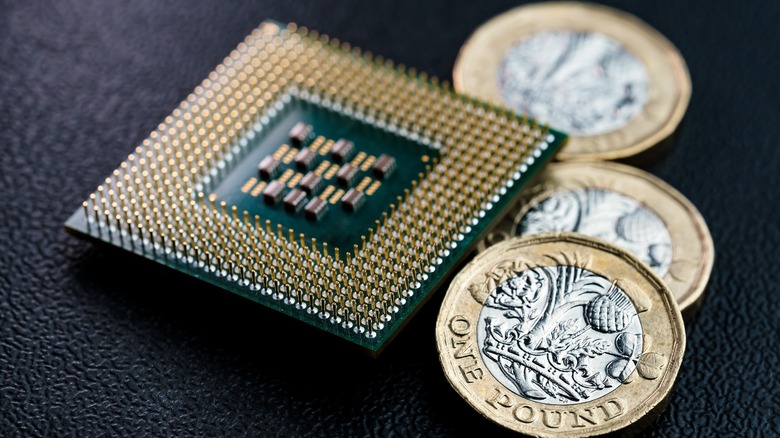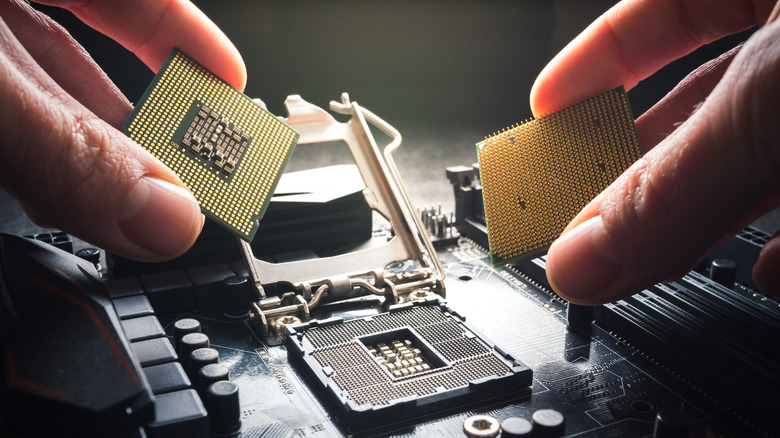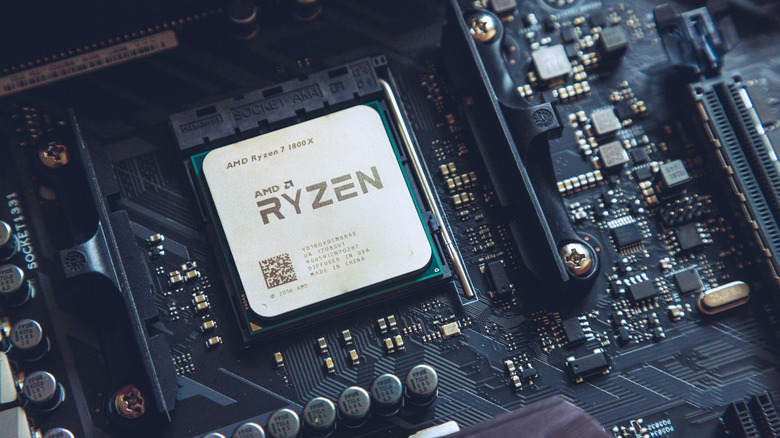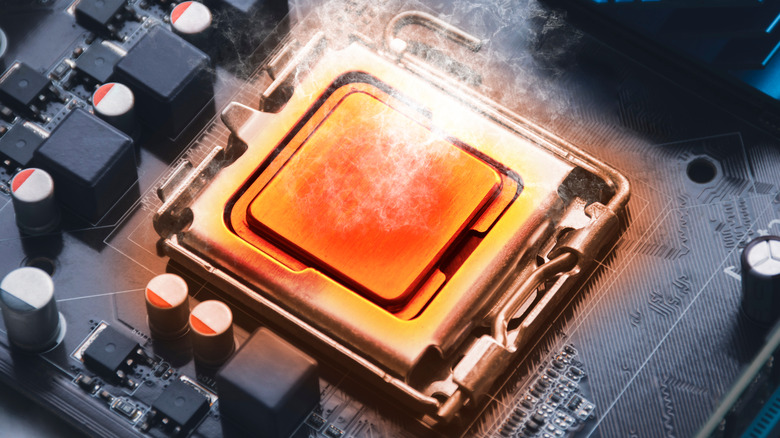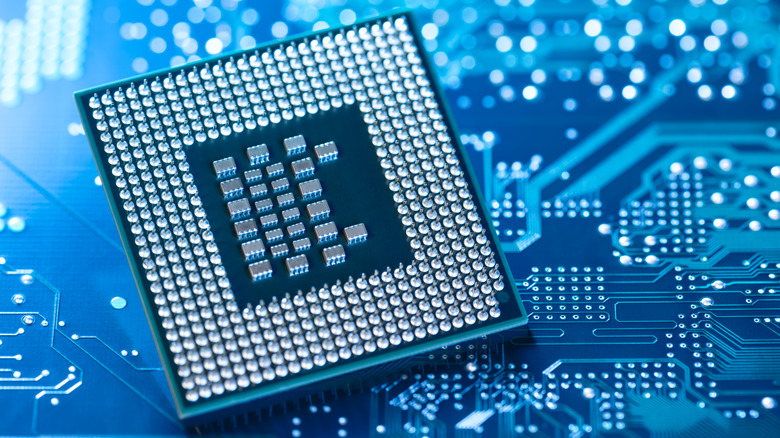CPU Buying Tips: 5 Things You Need To Watch Out For When Purchasing A New Processor
When purchasing a new processor for your computer, making an informed decision is crucial to ensure optimal performance and longevity. The processor, or CPU, serves as the brain of your system, executing tasks and handling computations. With a wide range of options available in the market, it's essential to be aware of key factors that can impact your buying decision.
There are five broad considerations to watch out for when purchasing a new processor — budget, compatibility, usage, power, and future-proofing. These tips will help you navigate the various options at your disposal and enable you to choose a CPU that aligns with your specific needs and requirements. By paying attention to these factors, you can avoid potential bottlenecks and maximize the performance of your computer.
Whether you are a gamer seeking high-performance capabilities, a content creator working with resource-intensive applications, or a casual user looking for a reliable and efficient processor, understanding these crucial aspects will empower you to make a well-informed decision. Here is what you should keep in mind while you are searching for your next CPU.
Budget
The first step towards finding a new processor is determining how much you can spend and then finding something that fits within that budget. It's important to strike a balance between price and performance to ensure you're getting the most bang for your buck.
As a starting point, you can compare different models and their performance-to-price ratios to make an informed decision. Also, keep in mind that there are plenty of budget CPUs that come highly recommended. For example, the AMD Ryzen 5 5600G and the Intel Core i3-13100 offer excellent price-to-performance ratios for both gaming and productivity tasks, which means these processors provide good overall performance while still being affordable.
Another consideration is the overclocking potential of the processor, particularly with AMD processors. Overclocking can further enhance the performance of budget CPUs, allowing you to squeeze out more power. The AMD Athlon 240GE is one example of a good value CPU with long-lasting performance and the ability to overclock. Additionally, the AMD Ryzen 7 5700G and the Intel Core i5-10400 both offer decent gaming capabilities at affordable prices. Meanwhile, the AMD Ryzen 5 5600G also stands out for its strong gaming performance and integrated graphics.
All that said, it's essential to compare the specifications and features of different models to find the one that suits your needs and provides the best performance for your budget. Factors like the number of cores, clock speeds, and compatibility with your existing motherboard should also be taken into account when making a decision.
Compatibility
When purchasing a new processor, ensuring compatibility with your existing hardware is crucial for seamless integration and optimal performance. First, you need to check the socket type of your motherboard and ensure that it matches the socket type supported by the processor you intend to purchase.
The socket type determines the physical connection between the processor and the motherboard. Different processors and motherboard models have specific socket requirements and are not interchangeable. For example, Intel CPUs use LGA sockets with flat contact areas, while AMD CPUs use PGA sockets with pins. Checking the motherboard's specifications and researching the socket type of your CPU online can help you find a compatible match.
Checking for any BIOS updates is also important to ensure compatibility and stability. They often include improvements and bug fixes that enable seamless integration with newer processors. Manufacturers frequently release BIOS updates to support new CPU models and enhance compatibility. Checking the motherboard manufacturer's website for compatibility information and the availability of BIOS updates is recommended.
To illustrate compatibility considerations, let's look at an example. Suppose you have an existing motherboard with an AMD AM4 socket and plan to upgrade to a new AMD Ryzen 5000 series processor. In this case, the AM4 socket provides some backward compatibility, allowing you to install the new processor on your existing motherboard without the need for a new one. However, it is still necessary to check for BIOS updates to ensure seamless integration and optimal performance.
Performance and usage
A mid-range processor with moderate clock speeds and a few cores would generally suffice for basic tasks like web browsing and office applications. However, for more demanding tasks such as gaming, video editing, or 3D rendering, investing in a high-performance processor with multiple cores and higher clock speeds is advisable.
If you are a gamer, a processor with high single-core performance is essential for delivering smooth gameplay and minimizing bottlenecks. In this case, options like the Intel Core i5-13600K or AMD Ryzen 5 7600X would be suitable choices. These processors balance price and performance well, providing enough power to handle modern games effectively.
On the other hand, professionals involved in tasks like video editing and 3D rendering require processors that excel in multi-threaded performance. Processors with higher core counts and higher clock speeds, such as the Intel Core i9-13900K or AMD Ryzen 9 7950X, would be more appropriate for these tasks. These processors provide the necessary processing power to handle complex computations and reduce rendering times significantly.
In addition to core counts and clock speeds, other factors should also be considered, such as integrated graphics, cache size, and platform compatibility.
Power consumption
Another aspect to keep in mind when purchasing a new processor is power consumption. Opting for processors with lower power consumption helps reduce electricity bills and generate less heat, improving overall system stability. Excessive heat can cause performance degradation and even hardware failures, so choosing a processor that operates at a lower power level can help establish a more reliable system.
High-power processors generate significant heat, often requiring robust cooling solutions such as fans or liquid cooling systems. These cooling mechanisms can produce considerable noise, creating a louder operating environment.
When searching for a new processor, it's essential to look for options that offer a good balance between performance and power efficiency. The ideal processor will deliver the desired computing power while consuming a reasonable amount of energy. For instance, processors like the Apple M1 and M2 chips have gained attention for their impressive performance and energy efficiency. These chips are designed to deliver exceptional performance per watt, resulting in powerful devices with extended battery life.
While there are lots of choices out there, AMD's Ryzen processors based on the Zen 3 architecture are known for their power efficiency. They offer a compelling option for users seeking a balance between power consumption and performance.
Future-proofing
A final important consideration is whether or not you want to purchase a newer-generation processor. Manufacturers often release new motherboards alongside processors, so upgrading to a newer CPU usually requires a motherboard upgrade as well. Investing in a newer generation CPU allows for future upgrades within the same generation, ensuring compatibility with modern games and applications. This approach helps avoid bottlenecking, where outdated components are unable to fully utilize the installed hardware, resulting in decreased efficiency and slower performance.
Researching the CPU's architecture and determining its compatibility with future technologies is another important step. Pay attention to advanced features, multiple cores, and storage support when making your decision. Considering reviews, lifespan, and replacement parts availability can also help ensure the longevity of your processor. Evaluating the power requirements, graphics capabilities, and cooling needs of the processor is also a good call.
Investing in a processor that allows for future upgrades or has a longer lifespan can result in cost savings, too. By extending the usability of your system, you can avoid the need for frequent CPU upgrades, which can be expensive. It's essential to strike a balance between the performance of the CPU and the graphics card to optimize system performance, avoid bottlenecks, and build the most capable system you can with the budget you have available.
